California Has Lost $5 Billion Due to Hollywood Strikes
Hollywood is usually bustling with actors and entertainers working on multi-million-dollar productions. But for the past four months, Hollywood has been at a standstill.
For the first time in over 60 years, the entertainment industry is almost entirely on strike, as both writers and actors have vowed not to work until they are met with respect and fair compensation. The boycott happening in Hollywood has had a crippling effect on California’s economy, with the state losing almost $5 billion since the strikes first started.
The Writers Strike First
The Writer’s Guild of America went on strike May 2, 2023. The Writer’s Union represents more than 11,500 screenwriters who are responsible for creating engaging scripts for movies and television shows.
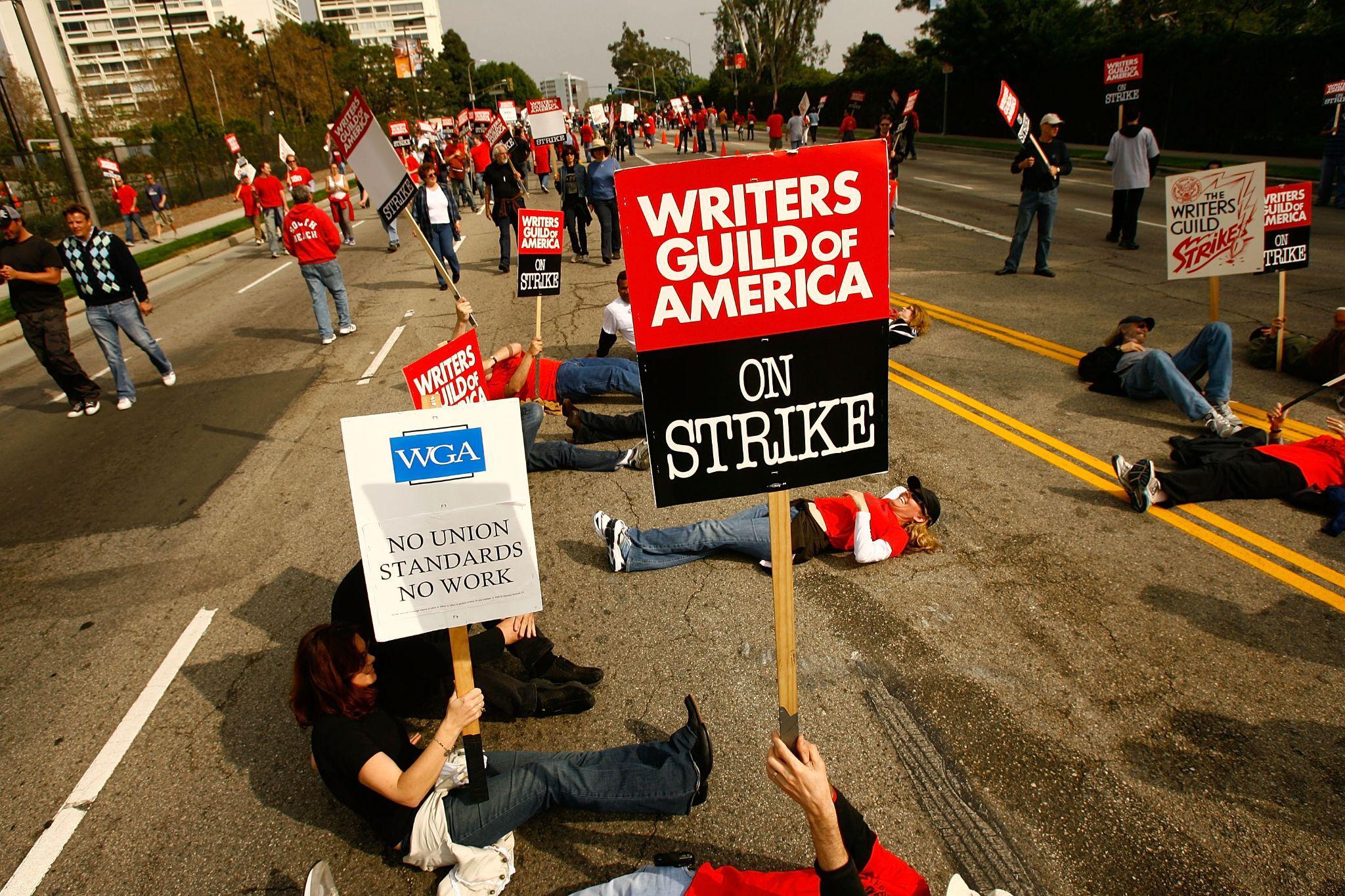
Source: David McNew/Getty Images
Hollywood’s writers have a list of demands, and they are refusing to return to work until their requests have been fulfilled. Writers are asking for increased pay and better residuals, but they also want to ensure their jobs won’t be at risk in the future. Writers are rightfully concerned about being replaced with artificial intelligence. The WGA is asking for production companies to safeguard writers from getting the boot in favor of advanced AI technology.
Actors Union Soon Follows Suit
On July 14, 2023, the Screen Actors Guild and American Federation of Television and Radio Artists, also known as SAG-AFTRA, joined Hollywood’s writers by going on strike.
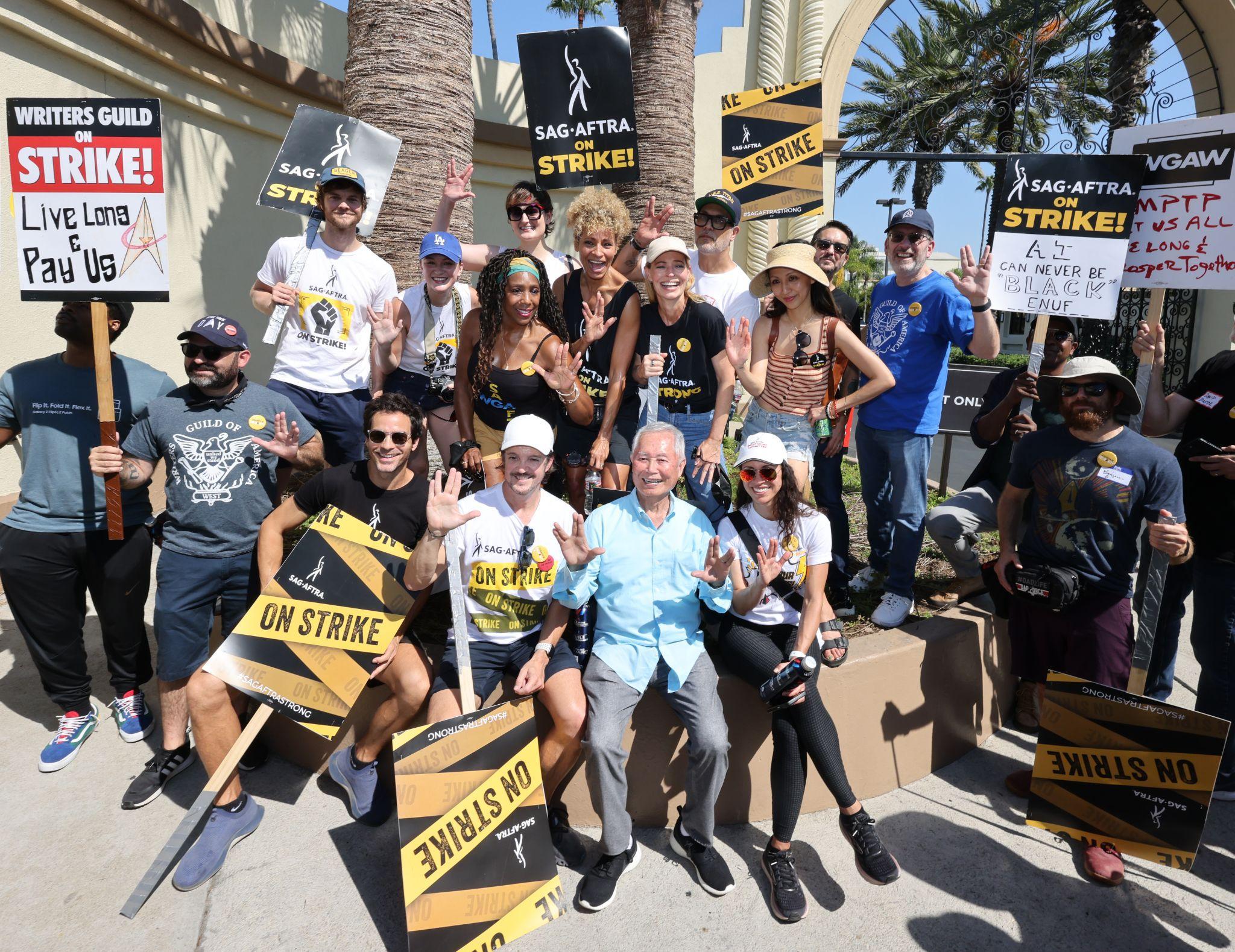
Source: David Livingston/Getty Images
SAG-AFTRA is asking that its talented actors get increased wages, protection from actors being emulated through the use of AI, fair residual payments, and better healthcare. The strike of Hollywood’s writers and actors has put Hollywood on an indefinite pause.
SAG-AFTRA Demands Actors Get Respect and Fair Benefits
Fran Drescher, who serves as the president of SAG-AFTRA, gave a compelling speech that said actors will no longer accept being “marginalized, disrespected, and dishonored.”
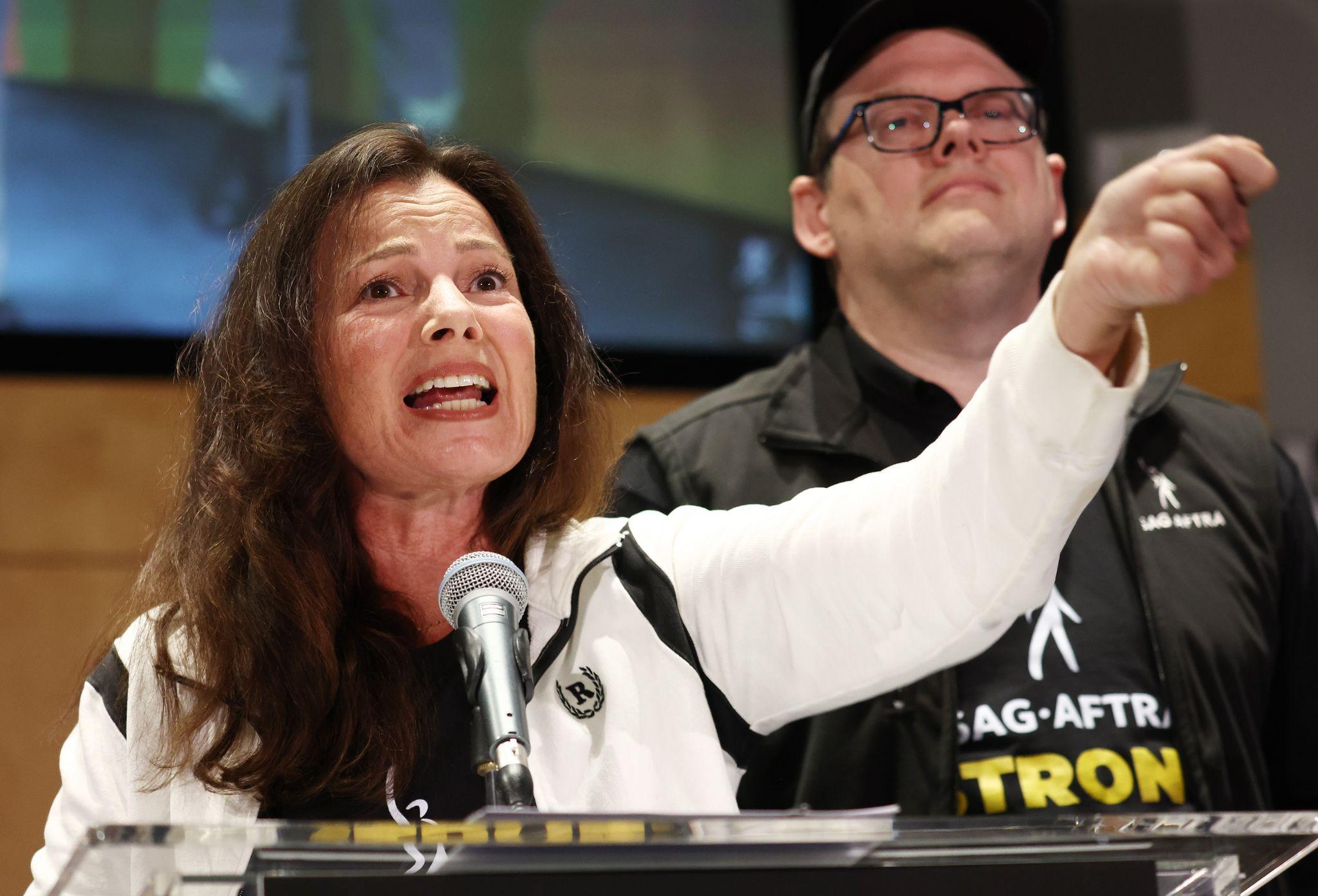
Source: Mario Tama/Getty Images
Drescher stressed the importance of the historic strike, noting that if they don’t act now the security of their careers will be in jeopardy. “If we don’t stand tall right now, we are all going to be in trouble. We are all going to be in jeopardy of being replaced by machines and big business,” she said.
The Hollywood Strikes Are Serious Business
Hollywood’s first ever double strike in more than six decades isn’t meant to be taken lightly. Both the WGA and SAG-AFTRA have joined forces to take on the Alliance of Motion Picture and Television Producers (AMPTP).
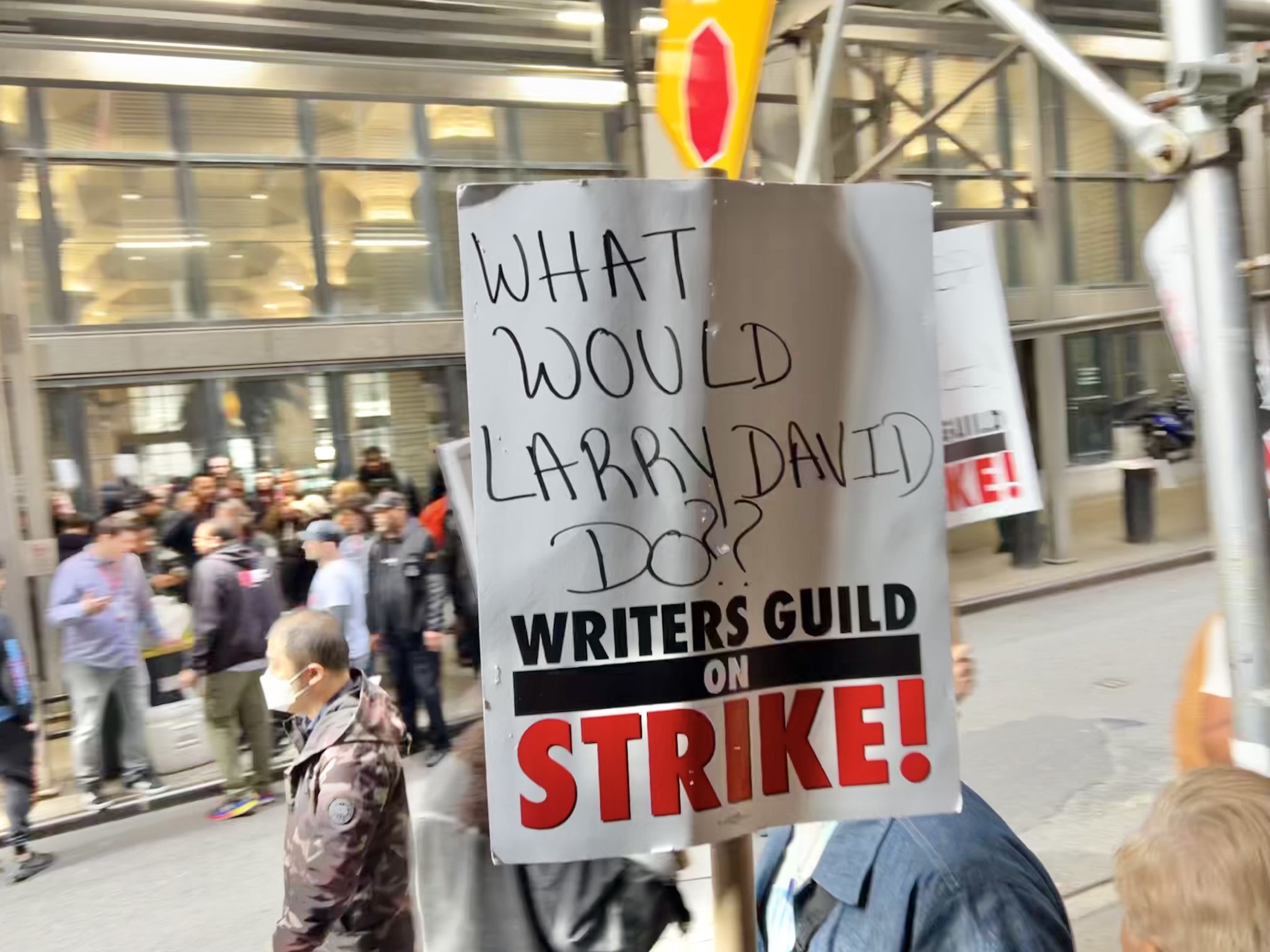
Source: Wikimedia Commons
So far there hasn’t been any movement from either side, putting all of Hollywood on hiatus until an agreement can be reached. If an actor or writer decided to work while the strikes were still ongoing, they would face consequences from their unions. Crossing the picket lines – also referred to as “scabbing” – could result in “censure, reprimand, fine, suspension, and/or expulsion.”
The Walkout Means Disaster for California’s Economy
While actors, writers, and almost all of Hollywood is taking a major hit by going on strike, the state of California has also taken a heavy hit during the walkout.
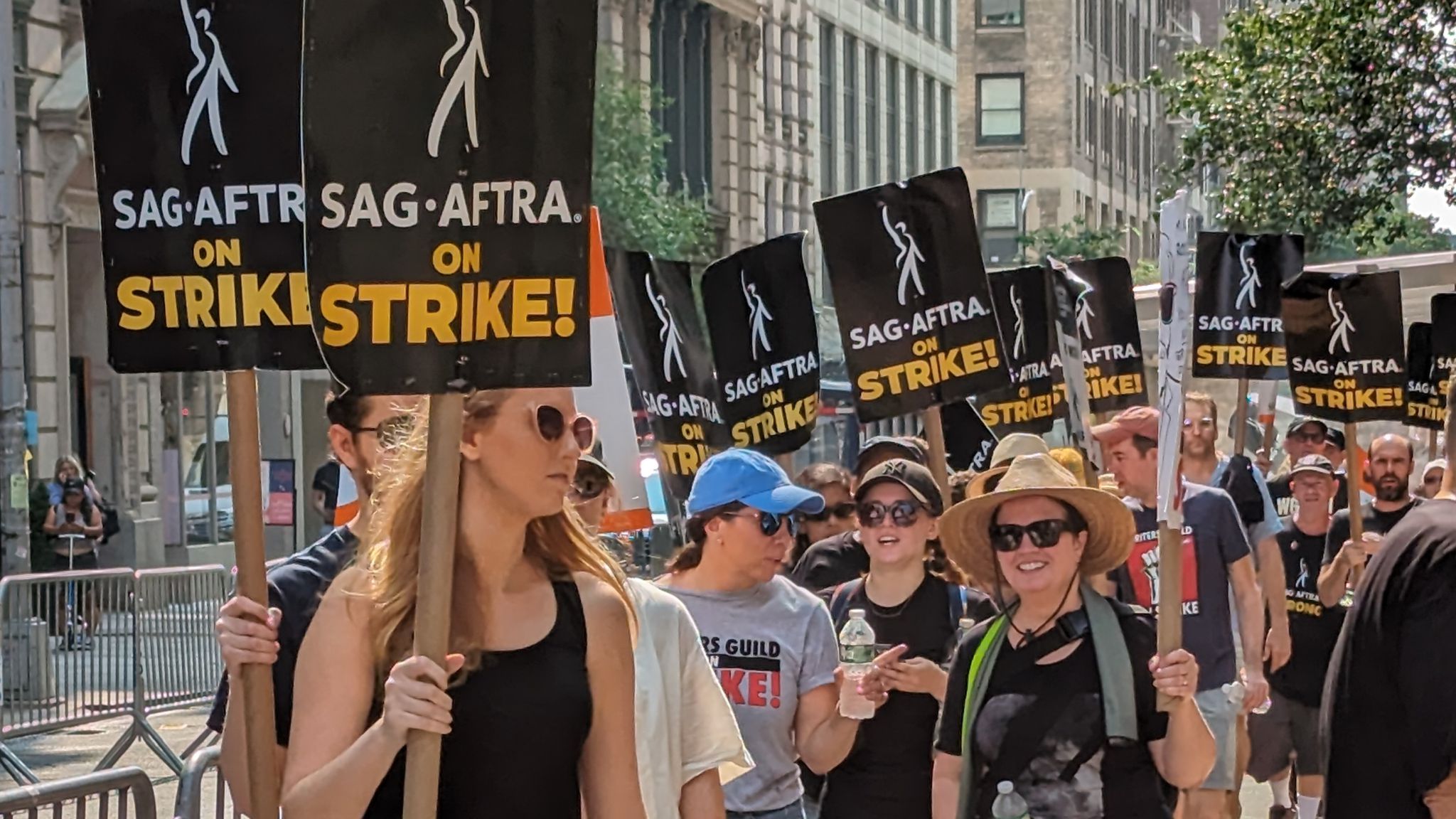
Source: Wikimedia Commons
California greatly relies on the income from Hollywood’s big business productions, and the lack of work means that the state is in financial trouble. But the dual strike affects more than just the entertainment industry—other small businesses throughout Los Angeles are struggling to stay afloat now that the WGA and SAG-AFTRA are on strike.
Impact on Many of California's Small Businesses
Caterers, dry cleaners, truckers, car rental companies, and various businesses that heavily support the entertainment industry have all been faced with challenges during the strike.
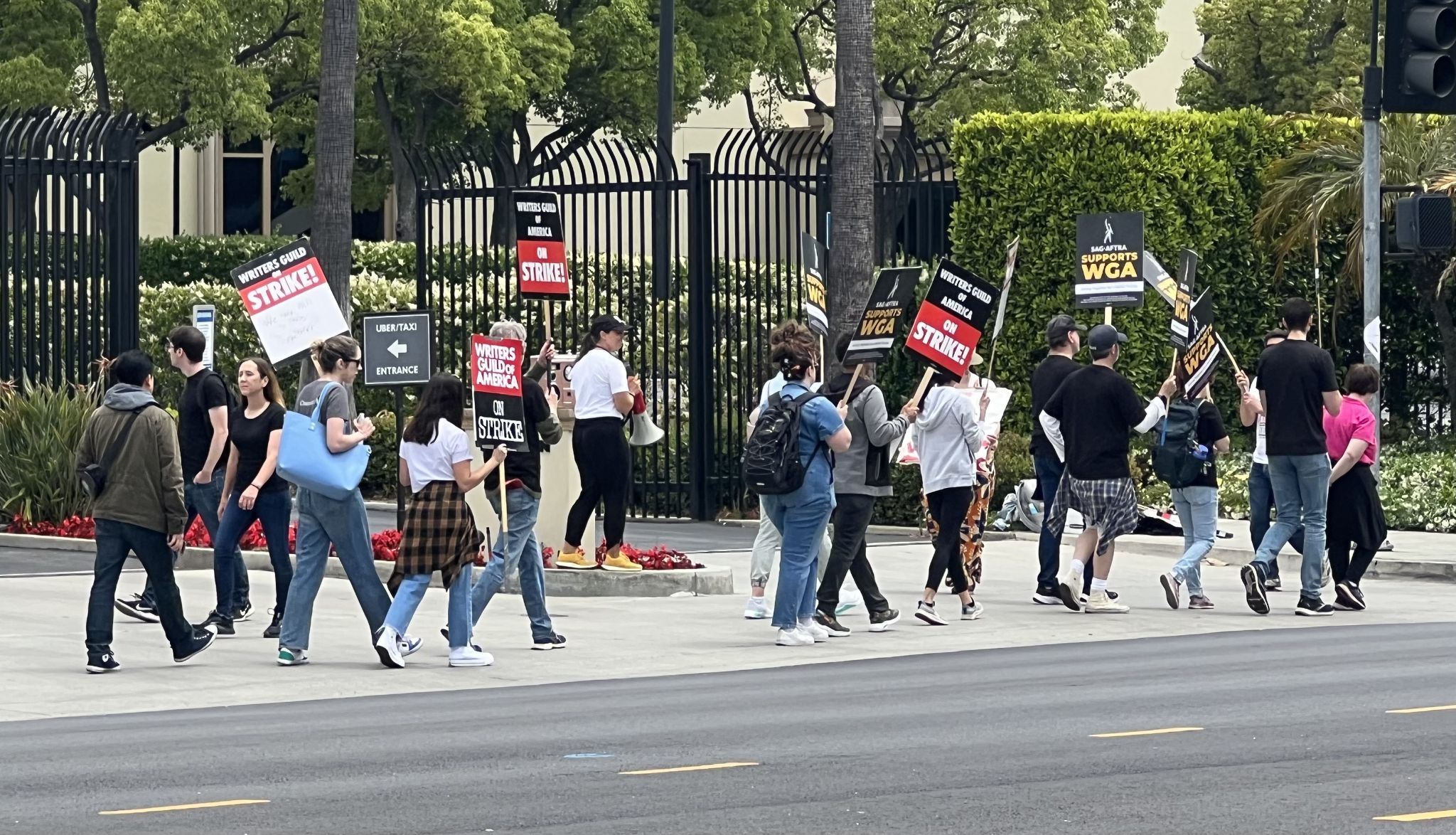
Source: Wikimedia Commons
Kevin Klowden, a global strategist at the Milken Institute, conducted research on exactly how California’s businesses have been impacted during the Hollywood walkout. According to Klowden, “All these different people who provide support services that make productions happen, they’re getting nailed.”
Blue-Collar Businesses Are Losing Massive Amounts of Money
The only way for the strike to end is for someone to bend, but negotiations have not resulted in a resolution thus far. Klowden insists that the strike exceeds Hollywood, and blue-collar workers have been pummeled by the loss of income due to LA’s ongoing shutdown.
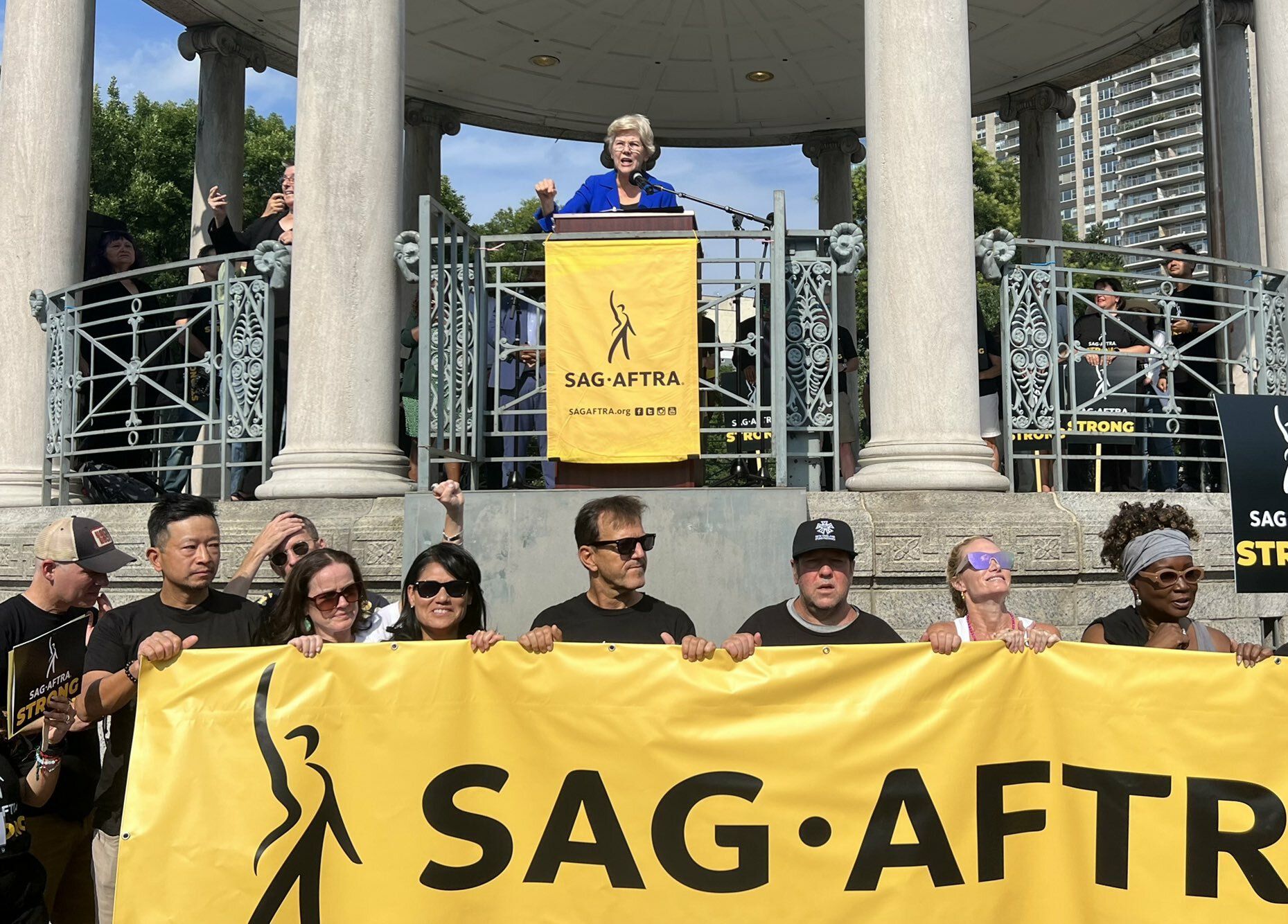
Source: Wikimedia Commons
“[The strike] was affecting restaurants and catering companies, affecting trucking companies, it was affecting welders, it was affecting construction people, it was affecting dry cleaners, it was affecting all sorts of businesses,” he said.
California’s Financial Situation Is Critical
California has been hemorrhaging money ever since the strike first started, and as of now, there’s no telling when the hiatus will come to an end.

Source: David Livingston/Getty Images
Todd Holmes, who works as an entertainment industry professor at California State University, Northridge, estimated that California would miss out on a staggering $3 billion payday in the first 100 days of the Hollywood strike. That number continues to increase every day that the boycott carries on.
Actors and Writers Receive Pennies for Residual Payments
It’s been 60 years since Hollywood shut down with such uncertainty about the future. Both unions are upset at the lack of residual income they receive from streaming platforms, as well as what AI could mean for the entertainment industry.
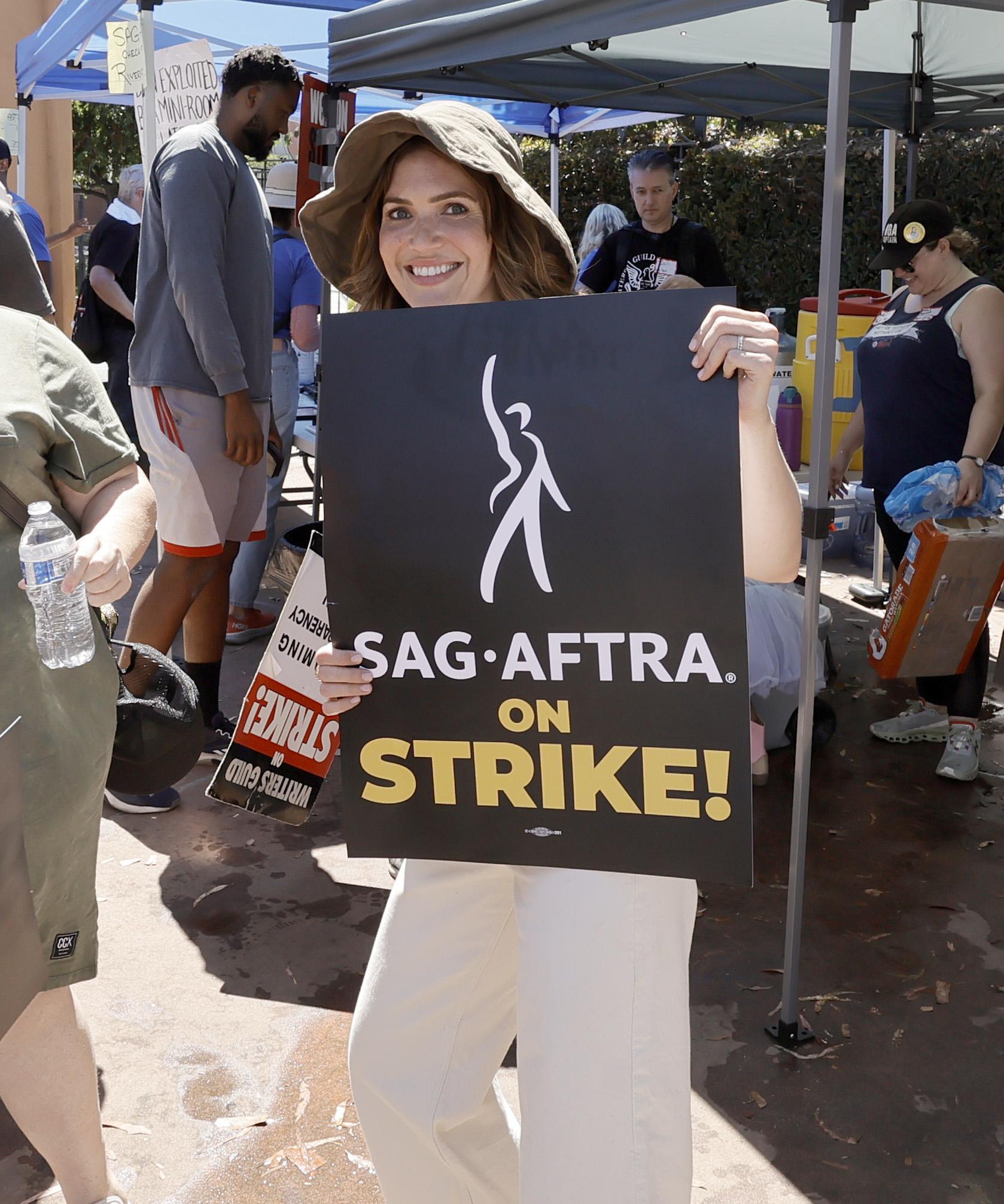
Source: Kevin Winter/Getty Images
Celebrities have come out of the woodwork to reveal the shamefully minuscule amounts of money they have gotten in residuals. Mandy Moore, who starred in the Emmy-nominated series, This Is Us, revealed that her residual checks from streaming platforms were as low as a single penny.
Actors Can’t Even Promote Projects During the Strike
Not only can movies and television shows no longer be produced during the strike, but Hollywood studios have stalled releasing already completed films in the wake of the strike.
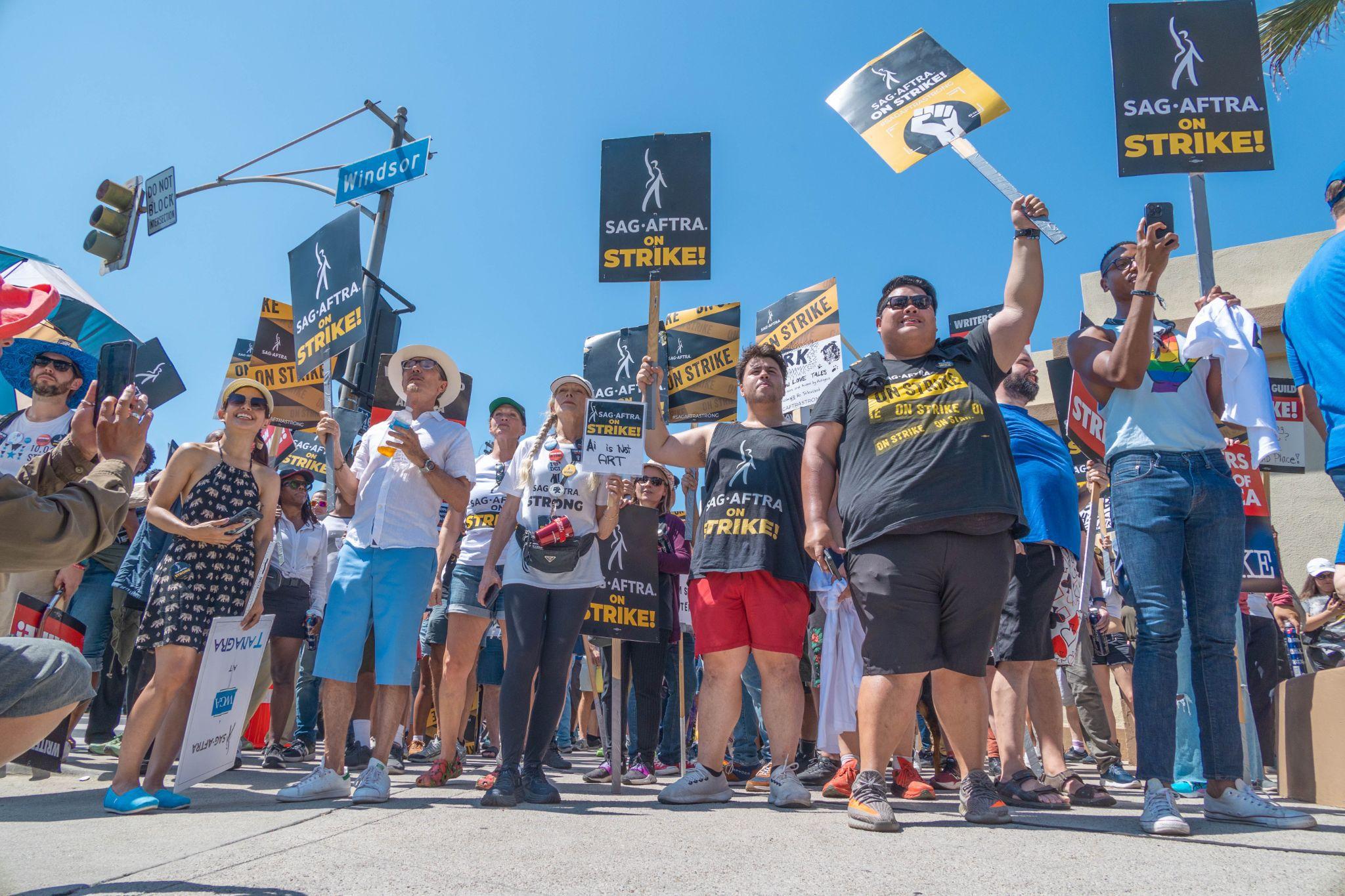
Source: Momodu Mansaray/Getty Images
Per union guidelines, actors are unable to promote their films while the WGA and SAG-AFTRA are at war with the Alliance of Motion Picture and Television Producers. That means films such as Dune: Part Two, Ghostbusters: Afterlife, and Spider-Man: Beyond the Spider-Verse were all delayed.
The Strike Must Go On
Hollywood’s essential talents want to be heard, and they won’t stop until they are acknowledged as assets to a multi-billion dollar industry.
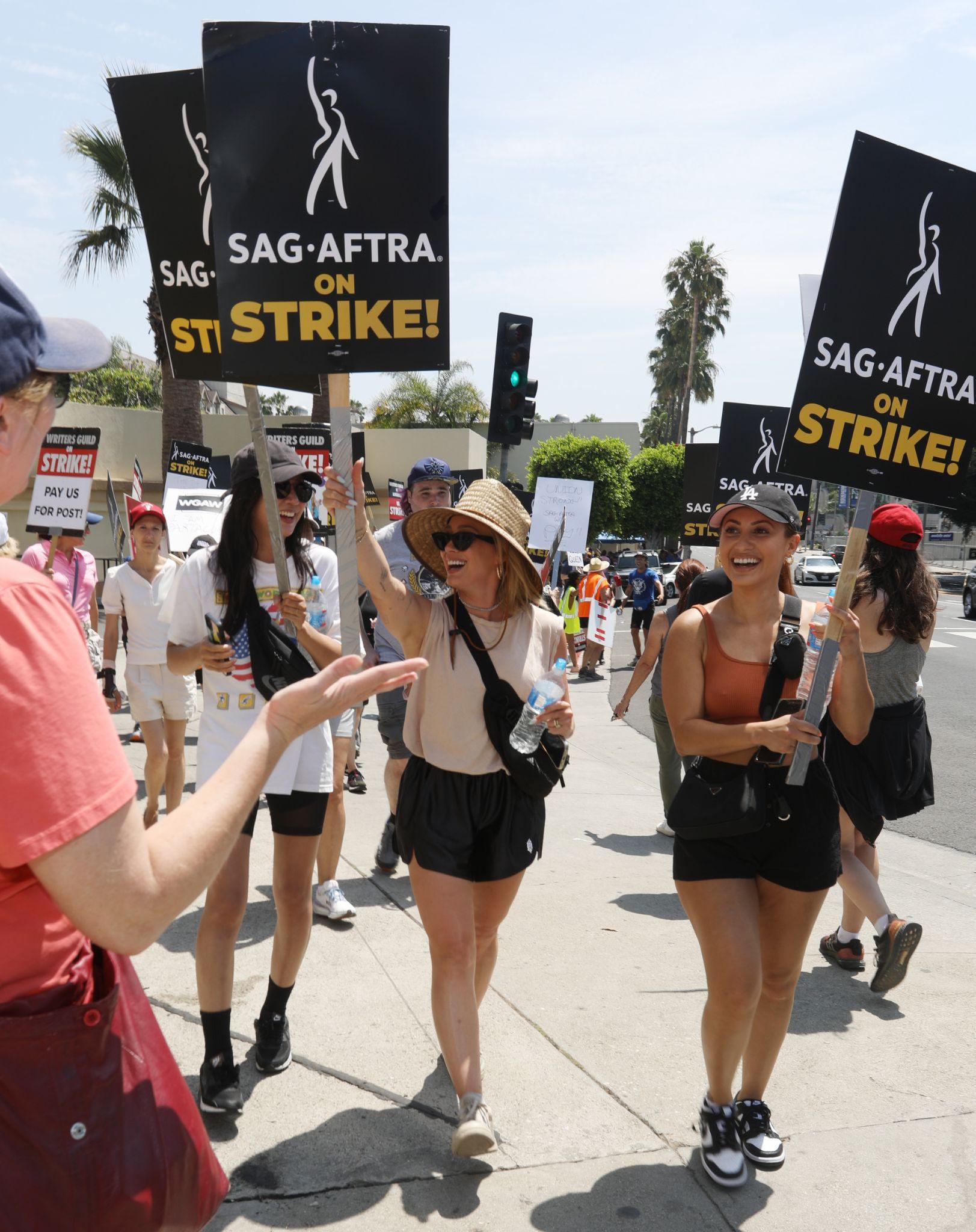
Source: jfizzy/Star Max/Getty Images
According to reports, the actors union hasn’t even heard from production studios in two months. As the strike rages on, California continues to lose valuable income at a rapid rate. Prop houses, set builders, driving services, local restaurants, and many more businesses continue to suffer as Hollywood remains on an indefinite pause. “A lot of different people are impacted surrounding the industry,” said Holmes. “And it’s causing them a lot of hardship.”
